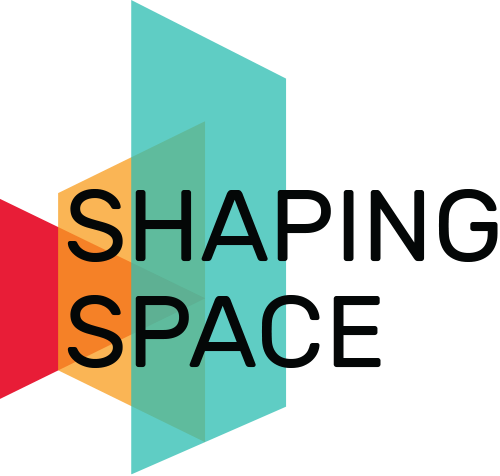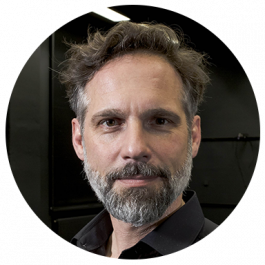



Biological Psychology and Neuroergonomics
Technische Universität Berlin
SHORT BIOGRAPHY:
Klaus Gramann holds the chair for Biological Psychology and Neuroergonomics at Technische Universität Berlin and is currently Professor at the school of software at the University of Technology Sydney, Australia. He is an internationally leading researcher in the area of human brain imaging in actively behaving participants and established the Berlin Mobile Brain/Body Imaging Lab which became part of the special infrastructure of the Berlin University Alliance. After studying Psychology in Germany and the Netherlands Prof. Gramann received his Diploma and later his PhD from the RWTH-Aachen. He worked as a Postdoc in Munich before he moved to the Swartz Center for Computational Neuroscience at the University of California San Diego in 2007 where he worked together with Scott Makeig to develop the Mobile Brain/Body Imaging approach. In 2011, he accepted a visiting Professorship at the National Chiao Tung University, Taiwan before he moved to Osnabrück and later to Berlin to accept the chair in 2012. Klaus Gramann received the Borchers Award from the RWTH-Aachen and stipends from the German Academic Exchange Service and the Lienert Foundation as well as a Hanse-Wissenschaftskolleg Fellowship. He was Co-Pi on several projects funded by the National Science Foundation (NSF), the Airforce and Army Research labs and the Australian Research Council (ARC). Klaus Gramann received numerous grants from the German Research Foundation (DFG) and the German Ministry for Education and Research (BMBF) and from the industry for his research in the area of spatial cognition, mobile brain imaging, and the use of electroencephalography combined with virtual reality.
Selected Publications:
1. Gramann, K., Gwin, J. T., Ferris, D. P., Oie, K., Jung, T. P., Lin, C. T., ... & Makeig, S. (2011). Cognition in action: imaging brain/body dynamics in mobile humans. Reviews in the Neurosciences, 22(6), 593-608.
2. Djebbara, Z., Fich, L. B., Petrini, L., & Gramann, K. (2019). Sensory-motor brain dynamics reflect architectural affordances.bioRxiv
3. Gramann, K., Onton, J., Riccobon, D., Mueller, H. J., Bardins, S., & Makeig, S. (2010). Human brain dynamics accompanying use of egocentric and allocentric reference frames during navigation. Journal of cognitive neuroscience, 22(12), 2836-2849.
4. Goeke, C., Kornpetpanee, S., Köster, M., Fernández-Revelles, A. B., Gramann, K., & König, P. (2015). Cultural background shapes spatial reference frame proclivity. Scientific reports, 5, 11426.
5. Banaei, M., Hatami, J., Yazdanfar, A., & Gramann, K. (2017). Walking through architectural spaces: the impact of interior forms on human brain dynamics. Frontiers in human neuroscience, 11, 477.
6. Makeig, S., Gramann, K., Jung, T. P., Sejnowski, T. J., & Poizner, H. (2009). Linking brain, mind and behavior. International Journal of Psychophysiology, 73(2), 95-100.
7. Gwin, J. T., Gramann, K., Makeig, S., & Ferris, D. P. (2011). Electrocortical activity is coupled to gait cycle phase during treadmill walking. Neuroimage, 54(2), 1289-1296.
8. Gwin, J. T., Gramann, K., Makeig, S., & Ferris, D. P. (2010). Removal of movement artifact from high-density EEG recorded during walking and running. Journal of neurophysiology, 103(6), 3526-3534.
9. Töllner, T., Wang, Y., Makeig, S., Müller, H. J., Jung, T. P., & Gramann, K. (2017). Two independent frontal midline theta oscillations during conflict detection and adaptation in a Simon-type manual reaching task. Journal of Neuroscience, 37(9), 2504-2515.
10. Zander, T. O., Krol, L. R., Birbaumer, N. P., & Gramann, K. (2016). Neuroadaptive technology enables implicit cursor control based on medial prefrontal cortex activity. Proceedings of the National Academy of Sciences, 113(52), 14898-14903.
Prof. Dr. Sabine Ammon (Speaker)
Knowledge Dynamics and Sustainability in the Technological Sciences
TU Berlin
Marchstraße 23 10587 Berlin
Phone: +49 (0)30 314-73363
E-Mail: ammon@tu-berlin.de
Prof. Dr.-Ing. Christoph Gengnagel (Speaker)
Structural Design and Engineering
UdK Berlin
Hardenbergstr. 33 10623 Berlin
Phone: +49 (0)30 3185-2991
E-Mail: gengnagel@udk-berlin.de
Prof. Dr. Stefan Weinzierl (Speaker)
Audio Communication Group
TU Berlin
Einsteinufer 17 10587 Berlin
Phone: +49 (0)30 314-25359
E-Mail: stefan.weinzierl@tu-berlin.de

